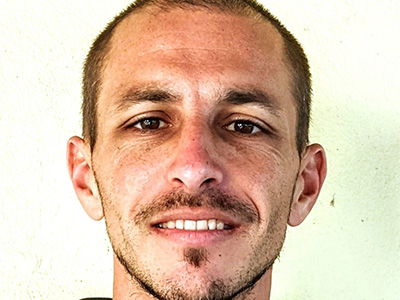Irrigation as a Service Entrepreneur Series: Story #5
Investing in Irrigation Innovation
Alvin Otim, a finance professional turned agricultural entrepreneur, is bringing a unique perspective to One Acre Fund's venture studio and introducing fresh ideas to the field of Irrigation as a Service (IaaS).
One Acre Fund, an organization that invests in farmers to help them increase their yields and profits, created the venture studio to address key value chain gaps. After identifying that traditional NGO programs and external small and medium-sized enterprise investments were not enough, the team began incubating its own businesses to build farmer-centered solutions from the ground up.
The venture studio’s competitive edge lies in its deep understanding of smallholder farmers’ needs and its innovative approach to addressing agricultural gaps. By developing solutions like battery-powered irrigation systems, the studio aims to provide viable and cost-effective alternatives to traditional farming practices.
Through the venture studio, Alvin is integrating an IaaS model with One Acre Fund’s established farmer credit programs, offering Rwandan smallholder farmers more diverse ways to access irrigation.
Mobile Battery-powered Systems and Network Integration
One Acre Fund’s IaaS model stands out for two key features: mobile battery-powered systems and seamless integration with its existing network.
The mobile system uses battery packs to power a small pump and sprinkler, with the flexibility to charge using both solar and grid electricity. This approach ensures reliable irrigation, even during power outages or cloudy weather.
In addition, the IaaS program integrates with One Acre Fund’s farmer support programs. This means farmers can access irrigation on credit alongside their other essential inputs, which further lowers the barriers to using it.
Addressing Farmer Challenges
The IaaS venture was initiated in response to key challenges faced by Rwandan farmers. Research revealed that high pump costs and fuel expenses were major obstacles to irrigation access and use. At the same time, the growing presence of micro-entrepreneurs renting pumps to farmers indicates a clear demand for a service-based irrigation model.
Additional research showed that ,irrigation costs could account for up to 30% of a farmer's revenue, underscoring the need to lighten this burden with at least cleaner and more affordable energy sources.
Initial pilot programs in the Kayonza district have yielded promising results, with farmers reporting satisfaction. The team is now focused on further testing and refining the business model to improve ease of use, strengthen business margins, and ensure scalability. The team also discovered that the “smallholder farmer” is not a one-size-fits-all customer profile. They now segment users by factors like distance from the water source, elevation, and crop type, allowing for tailored pump recommendations.
Navigating Challenges: Procurement and Training
As a young enterprise, the venture studio has faced challenges, particularly with procurement and farmer training. Initial prototypes of the system were bulky and underperformed in Rwanda’s hilly terrain. The team transitioned to lighter, more efficient DC pumps—though sourcing high-quality models proved difficult. Ultimately, strong relationships with distributors who offered expertise in design, service, and maintenance.
Another key challenge was the need for more farmer training than initially expected. Many participants in the One Acre Fund program have limited formal education, which highlighted the importance of hands-on guidance and tailored support to ensure successful use of the system.
High-Value Crops and Value-Added Processing
The current focus is on Rwanda's drier eastern region, where the venture aims to assist farmers in transitioning to high-value crops to increase their income. Rwanda's government initiatives that support irrigation and along with its relatively reliable electricity connectivity, provide a strong foundation for growth, and have attracted larger interest.
The next phase will concentrate on accelerating farmer uptake of IaaS and supporting them in transitioning to high-value crops to increase their agricultural income. For Alvin, bringing finance and farming together through One Acre Fund’s Venture Studio is a pathway to ensure Rwandan farmers can viably irrigate in the near and far-term, grow higher value crops, and secure better livelihoods.
About the Irrigation as a Service Entrepreneur Series
The Irrigation as a Service (IaaS) Entrepreneur Series highlights eight entrepreneurs who are developing innovative solutions to improve water access for smallholder farmers. In January 2025, DWFI brought together eight founders from seven countries for a workshop in Uganda, marking the largest-ever gathering of companies dedicated to IaaS. This series explores each of these companies’ journey with providing access to irrigation as a service – an alternative to pump ownership by farmers. Each founder offers a unique approach to providing this service. The series aims to share real-world experiences to guide future business development, research, and investment in IaaS, ultimately enhancing agricultural productivity in the Global South.
Erin Anders, DWFI Senior Program Manager, and Arianna Elnes, DWFI Communications Specialist, also contributed to this story.


